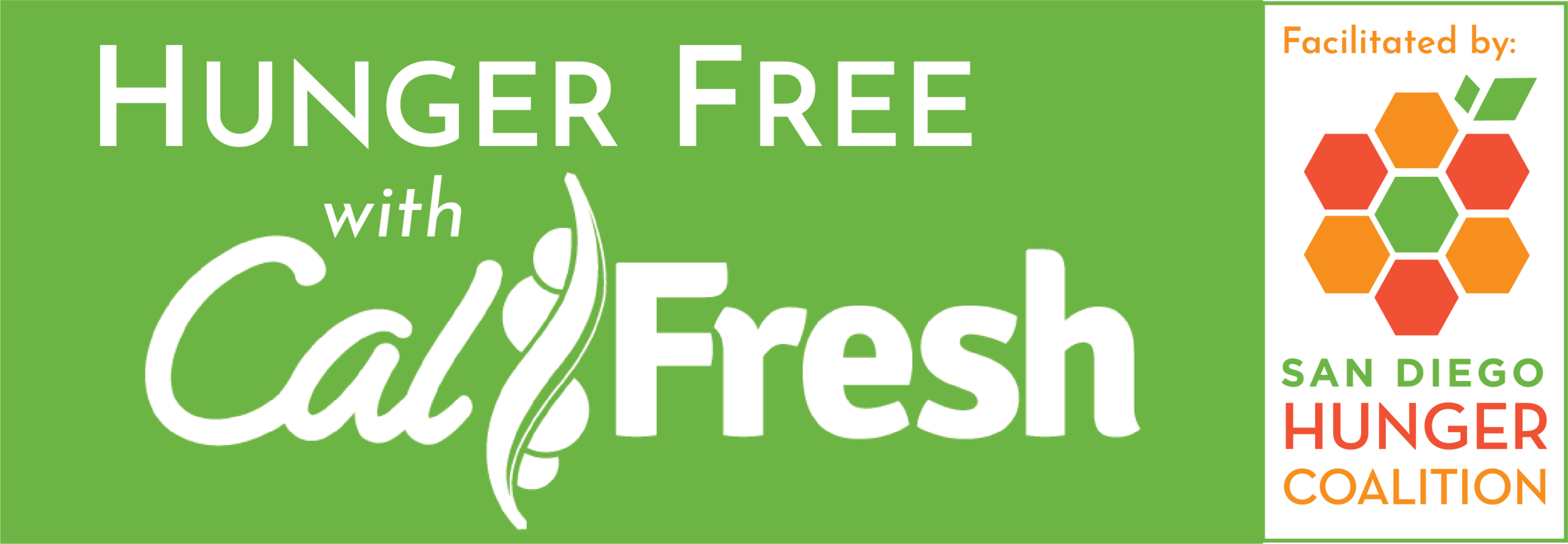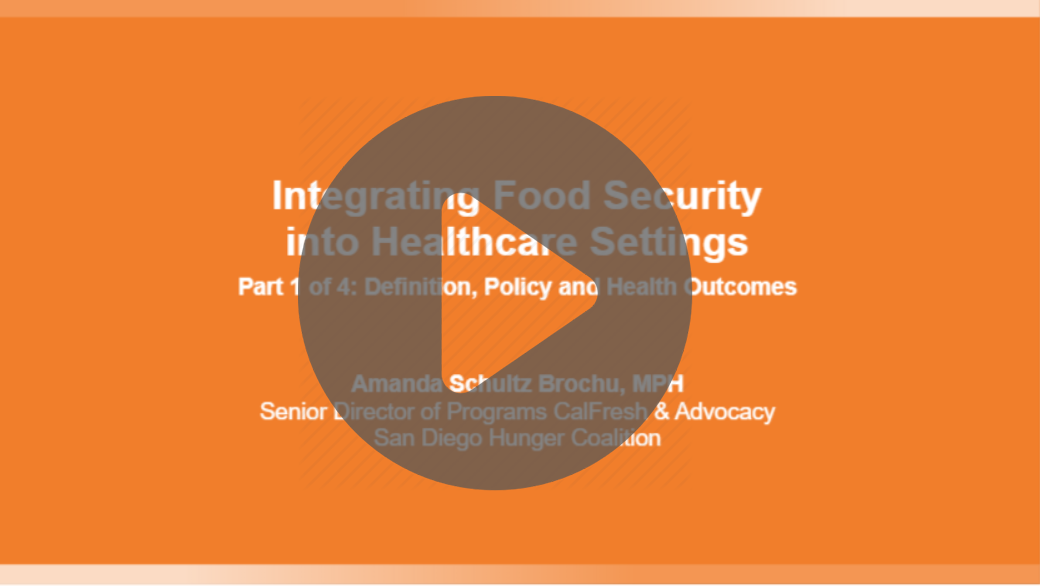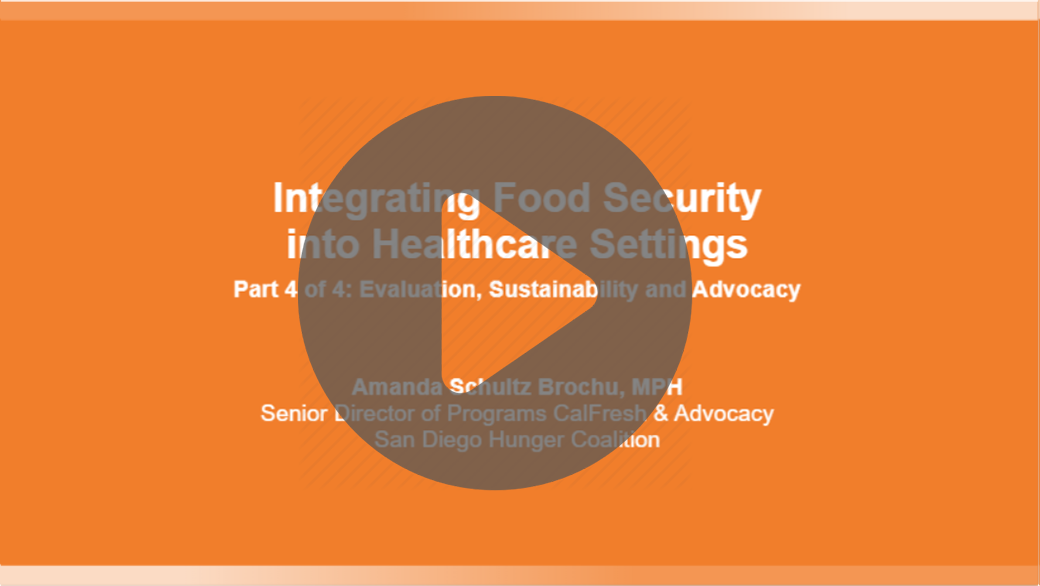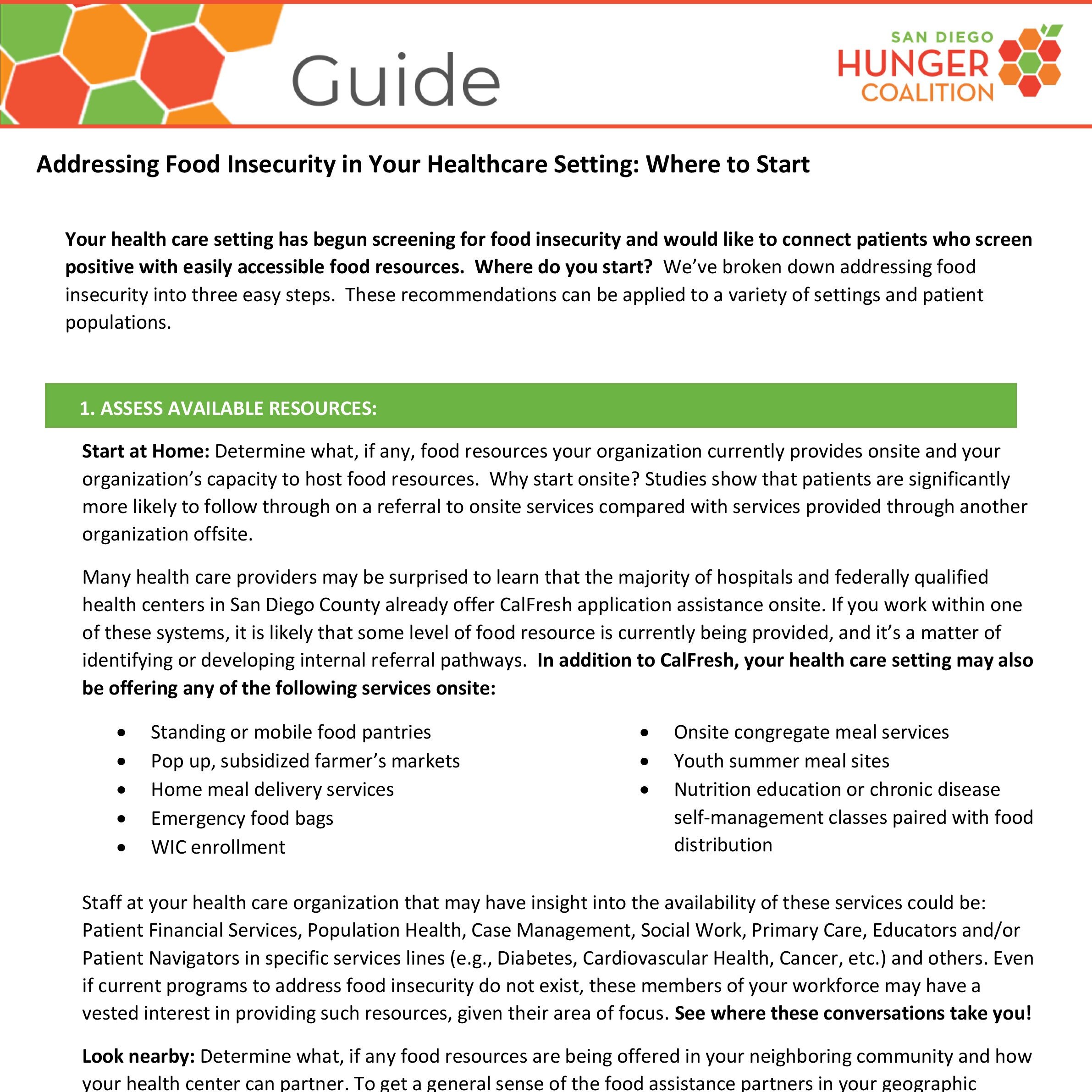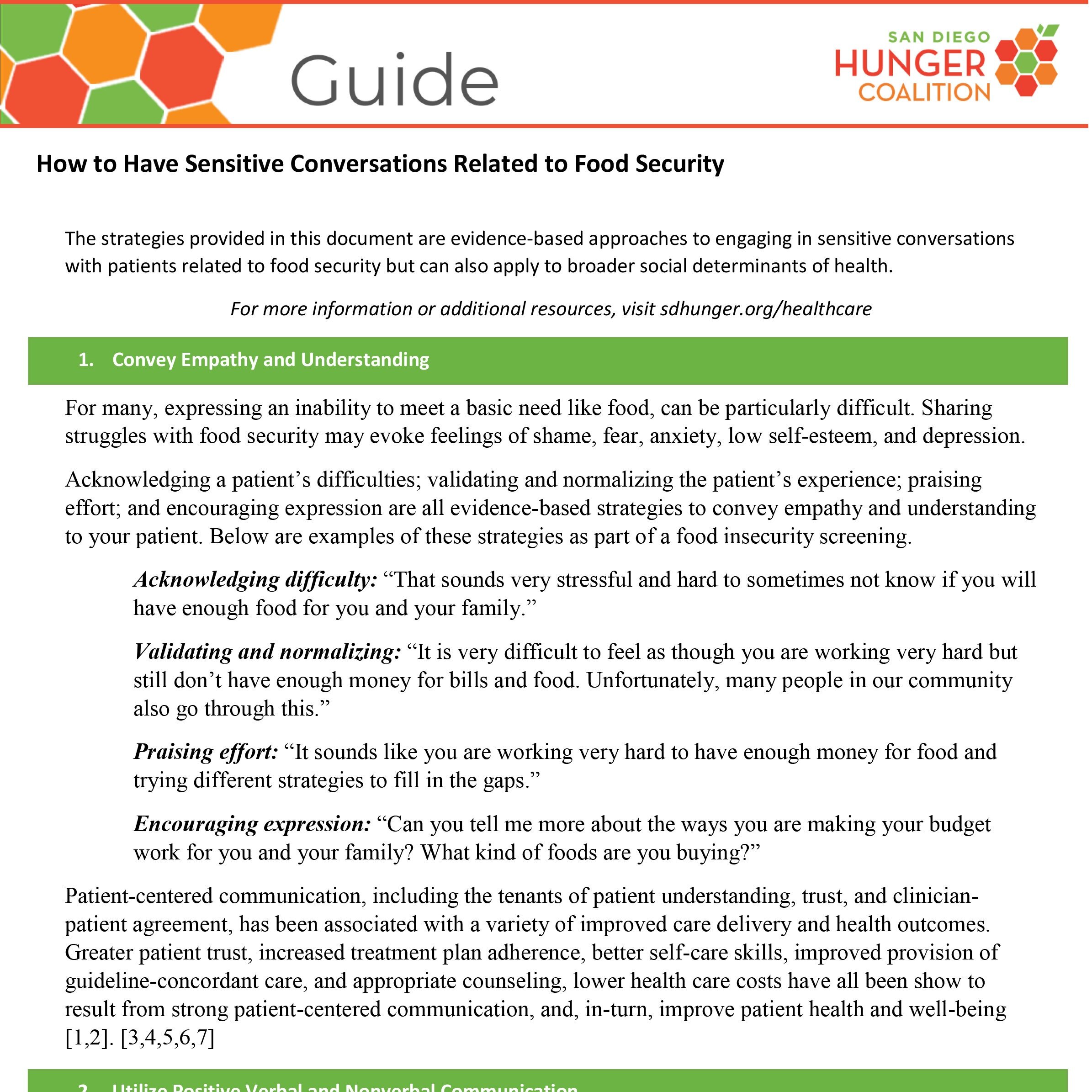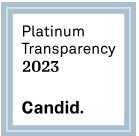Food Security and Healthcare Curriculum
Food insecurity affects people of every age and background and touches every neighborhood in San Diego County.
One of the most direct impacts of hunger is on our health. Adults who experience food insecurity are:
47% more likely to visit an emergency room or be admitted to a hospital.
Likely to stay 57% longer in a hospital than food secure peers.
At TWICE the risk of developing diabetes even after accounting for differences in age, gender, race, smoking, alcohol use, diet, and physical activity.
Healthcare settings are an ideal place to connect food insecure patients to resources. Patients are more likely to sign up for food assistance when it is seen as part of their patient care plan.
San Diego Hunger Coalition has partnered with various healthcare and nonprofit partners since 2014 to integrate screening and food assistance into healthcare settings. This is part of our work to ensure every San Diego resident has enough to eat by:
Normalizing food insecurity.
Reducing the stigma associated with food assistance.
Making food assistance and referrals available in people’s everyday environments.
Integrating Food Security into Healthcare Settings (Curriculum)
The Hunger Coalition and Sharp Healthcare have partnered to release a new Continuing Medical Education curriculum that prepares medical professionals to incorporate food insecurity screening and food assistance referrals into their patient care plans.
The curriculum is comprised of four 20-minute webinars:
1. Definition of Food Insecurity, Policy and Health Outcomes
a. Define food insecurity as a social determinant of health and understand its historical context in the United States
b. Understand food insecurity’s link to health outcomes
2. Screening Patients for Food Insecurity
a. Learn evidence based tools to screen for food insecurity
b. Describe different approaches to document food insecurity identified in patients
c. Understand basic skills to have effective, sensitive patient conversations about food insecurity
3. Connecting Patients to Food Resources
a. Increase awareness about currently available food resources
b. Identify methods to address food insecurity and connect patients to appropriate food resources
4. Evaluation, Sustainability and Advocacy
a. Learn best practices to measure and evaluate impact of food insecurity screening and referral
b. Understand opportunities to advocate for and build capacity to address food insecurity as a social determinant of health
Resources
Sharp HealthCare Continuing Medical Education Modules (external website)
Together, San Diego Hunger Coalition and Sharp HealthCare created a food insecurity curriculum for medical professionals. This milestone in patient care provides tools to identify food insecurity and provide next steps for patients experiencing hunger.
The Sharp Continuing Medical Education Portal is open to the general public and is free of charge. Users are required to set up a free account to access the curriculum.
Addressing Food Insecurity: Where to Start (handout)
This three-page guide outlines key steps for healthcare organizations interested in exploring, implementing or expanding approaches to identifying and addressing food insecurity with their patients.
How to Have Sensitive Conversations with Patients (handout)
A companion to the curriculum, this one page front and back PDF can also be used as a stand-alone reference for healthcare settings interested in concrete, evidence-based strategies to strengthen communication surrounding food security with patients.
Launching Rx for CalFresh (report)
Written in 2016, this report provides a basic blue print for collaborative models to integrate food insecurity into healthcare settings, including initial findings, best practices and lessons learned from multiple pilots conducted across San Diego hospitals, clinics, and home visiting nurse programs.
Technical Assistance
For additional information about this work or technical assistance to begin or expand a program in your setting, please contact one of our program specialists!


